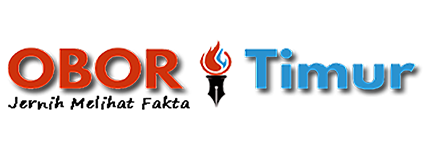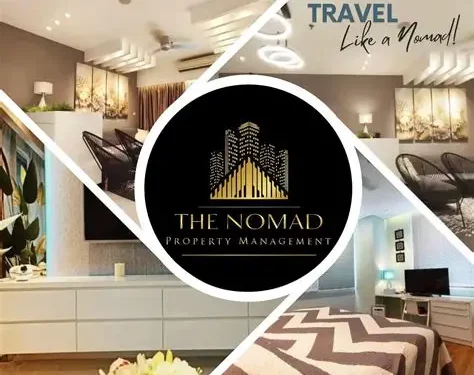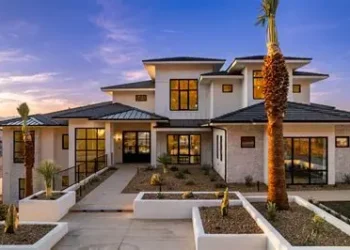Diving into the realm of nomad property management, this introduction delves into the innovative approach of managing properties remotely. From redefining traditional property management to embracing cutting-edge technology, the world of nomad property management offers a fresh perspective for property owners seeking efficient and effective solutions.
As we navigate through the key features, remote maintenance strategies, tenant relations, and financial management aspects, the landscape of property management is evolving rapidly to meet the demands of a changing world.
Introduction to Nomad Property Management
Nomad Property Management is a modern approach to managing properties remotely, allowing property owners to oversee their real estate investments from anywhere in the world.
Unlike traditional property management where owners are often required to be physically present or hire a local property manager, nomad property management leverages technology and online platforms to streamline the management process.
Differences between Nomad Property Management and Traditional Property Management
- Nomad property management allows property owners to access real-time data and reports on their properties from anywhere with an internet connection, eliminating the need for physical presence.
- Traditional property management often relies on local property managers who may not always provide transparent communication or timely updates to owners.
- Nomad property management offers flexibility and convenience, enabling owners to make quick decisions and adjustments based on market trends and property performance.
Benefits of Nomad Property Management for Property Owners
- Increased transparency and access to real-time data for informed decision-making.
- Cost-effectiveness by reducing the need for hiring local property managers or making frequent trips to oversee properties.
- Improved efficiency through automated processes and digital tools for property management tasks.
Challenges Associated with Managing Properties Remotely
- Difficulty in handling maintenance and repairs without physical presence to oversee the work.
- Communication barriers with tenants or local service providers due to time zone differences or language barriers.
- Risk of relying too heavily on technology, leading to potential security breaches or data loss.
Key Features of Nomad Property Management
Nomad property management systems offer a range of essential features that streamline the management of properties remotely. These key features leverage technology to provide efficient solutions for property owners and managers.
Efficient Property Monitoring
- Real-time monitoring of properties through smart devices and sensors.
- Access to live video feeds for security and maintenance checks.
- Automated alerts for any suspicious activities or maintenance issues.
Remote Access and Control
- Ability to remotely control smart devices such as thermostats, lights, and locks.
- Access to property data and reports from anywhere with an internet connection.
- Remote management of rental agreements, payments, and maintenance requests.
Data Analytics and Insights
- Utilization of data analytics to track property performance and trends.
- Insights on tenant behavior, preferences, and satisfaction levels.
- Forecasting tools for predicting maintenance needs and optimizing rental income.
Integrated Communication Channels
- Centralized communication platforms for easy interaction with tenants, vendors, and staff.
- Automated messaging for rent reminders, lease renewals, and maintenance updates.
- Secure channels for sharing important documents and information.
Examples of Tools and Software
- Property management software like Buildium, AppFolio, or Rentec Direct.
- Smart home automation systems such as Nest or Ring for remote monitoring and control.
- Data analytics platforms like Tableau or Power BI for property performance analysis.
Remote Maintenance and Inspections
Ensuring proper maintenance of properties is crucial for property management, even when managing them remotely. Nomad Property Management has a streamlined process in place to address maintenance issues and conduct inspections efficiently.
Remote Maintenance Process
- When a maintenance request is received, our team evaluates the urgency and nature of the issue.
- For minor repairs, we work with a network of trusted local contractors who can address the problem promptly.
- For major repairs or renovations, we coordinate with specialized service providers to ensure quality work.
Remote Inspections Procedure
- Regular virtual inspections are conducted using video calls or photos provided by tenants.
- These inspections help us assess the condition of the property and identify any maintenance needs.
- In cases where an in-person inspection is required, we schedule it with the tenant or a local representative.
Role of Contractors and Service Providers
- Contractors and service providers play a vital role in maintaining properties remotely by addressing maintenance issues promptly.
- They are responsible for executing repairs, renovations, and other maintenance tasks as needed.
- We ensure that all contractors and service providers adhere to our standards of quality and professionalism.
Best Practices for Remote Maintenance
- Establish clear communication channels with tenants to report maintenance issues promptly.
- Maintain a list of reliable contractors and service providers for quick response to maintenance requests.
- Regularly schedule virtual inspections to monitor the condition of the property and address any issues proactively.
- Provide detailed maintenance guidelines to tenants to prevent common issues and ensure proper care of the property.
Tenant Communication and Relations
Effective tenant communication is a crucial aspect of property management, especially when managing properties remotely. Building positive tenant relations can lead to happier tenants, longer lease agreements, and ultimately, better property maintenance and care.
Strategies for Fostering Positive Tenant Relations
- Regularly communicate with tenants through email, phone calls, or messaging apps to address any concerns or inquiries promptly.
- Provide clear and detailed information about property rules, maintenance schedules, and emergency contacts to keep tenants informed and engaged.
- Organize virtual meetups or events to create a sense of community among tenants and encourage interaction.
- Show empathy and understanding towards tenant needs and concerns, demonstrating a willingness to listen and find solutions together.
Tips for Addressing Tenant Needs and Concerns Effectively
- Establish a reliable system for receiving and responding to maintenance requests, ensuring timely resolution of issues.
- Utilize online platforms for submitting maintenance requests, paying rent, and accessing important documents to streamline communication processes.
- Implement regular check-ins with tenants to assess their satisfaction levels and address any issues before they escalate.
- Encourage open communication by creating a welcoming environment where tenants feel comfortable sharing their feedback and suggestions.
Examples of Communication Tools or Platforms Used
- Property management software like Buildium or AppFolio for centralized communication and document management.
- Email and text messaging services for quick updates, reminders, and announcements.
- Virtual meeting platforms such as Zoom or Microsoft Teams for conducting tenant meetings or virtual property tours.
- Social media groups or forums for fostering a sense of community and enabling tenants to connect with each other.
Financial Management in Nomad Property Management
Effective financial management is crucial in nomad property management to ensure smooth operations and profitability. Handling financial aspects such as rent collection and budgeting remotely requires efficient systems and tools to maintain financial stability and transparency.
Rent Collection and Budgeting
In nomad property management, rent collection is often done through online platforms or automated systems, allowing landlords to receive payments from tenants regardless of their location. Budgeting involves setting financial goals, allocating funds for maintenance and repairs, and planning for future investments without the need for physical presence.
Financial Transparency
Financial transparency is essential in nomad property management to build trust with tenants and stakeholders. It involves providing clear and accurate financial records, budget reports, and investment updates to ensure accountability and credibility in managing properties remotely.
Expense Tracking and Financial Reporting
Tracking expenses and generating financial reports from a distance can be achieved using cloud-based accounting software or property management platforms. These tools allow landlords to monitor income and expenses, analyze financial data, and generate detailed reports for better decision-making and financial planning.
Software and Systems
- QuickBooks Online: A popular accounting software used for managing finances, tracking expenses, and generating financial reports remotely.
- Buildium: A property management software that offers financial tools for rent collection, budgeting, and financial reporting in nomad property management.
- AppFolio: Another software solution that provides financial management features, including online payments, budget tracking, and financial statements for property owners.
Final Thoughts
In conclusion, nomad property management presents a dynamic shift in the real estate industry, offering a blend of convenience, technology, and effective communication to streamline property management processes. As property owners adapt to this new era of remote management, the future looks promising for those willing to embrace innovation and change.
FAQ Overview
How is rent collection handled in nomad property management?
Rent collection in nomad property management is typically done through online platforms or automated payment systems to ensure efficiency and transparency.
What are some common challenges associated with managing properties remotely?
Challenges may include coordinating maintenance tasks, addressing tenant issues promptly, and ensuring effective communication without physical presence.
How can property owners conduct remote inspections of their properties?
Property owners can utilize virtual tours, video calls, or hire local inspectors to conduct thorough inspections on their behalf.
What tools or software are commonly used in nomad property management for financial tracking?
Popular tools include property management software, accounting platforms, and expense tracking apps to streamline financial management processes.













